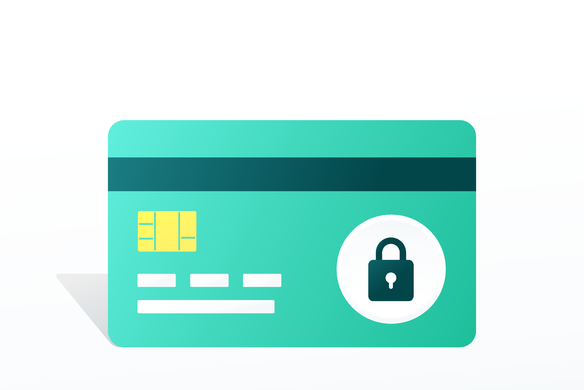Credit is a snapshot of how consumers manage their finances. With good credit, a consumer has the ability to get things such as a car or a home. These purchases typically require a loan to pay for them, and good credit ensures that a lender will decide that a consumer is a good credit risk. Poor credit means that consumers won’t qualify for loans or the loans may have higher interest rates. It’s preferable to build and maintain good credit to ensure purchasing power.
Establishing Credit
- Credit history includes information about one’s repayment history, the length of this history, the amount of debt, the types of credit used, new credit applications, and any defaults.
- Establishing a positive credit history has many benefits. Having credit available to use can be invaluable in emergencies, and it is often safer to use credit cards for purchases because it eliminates the need to carry cash.
- Having a good credit history will enable consumers to make large purchases such as cars and houses. These personal business solutions generally require financing over time.
- Establishing good credit takes time. Maintaining a checking and savings account with a bank is one step toward establishing positive credit history. Getting a credit card is usually the next step in building good credit.
- An older adult may need to establish credit after a divorce or a spouse’s death. Applying for a department store credit card or an oil company credit card may be a suitable place to start.
- When working to establish credit, open one credit card account and concentrate on making regular, small charges and paying them off in full each month.
- Credit offers that sound too good to be true likely are. Avoid advertisements for credit that promise unusual financial offers. Often, hidden terms exist in these offers that will negatively impact the consumer.
Maintaining Good Credit
- Consumers have the right to know what information is contained in their credit reports. Upon request, credit bureaus must release all information contained in a report.
- Consumers can request a free copy of a credit report once every 12 months. It’s possible to request this copy online.
- After gaining some credit, consumers must manage it correctly. Make payments on time and strive to pay off balances in full each month.
- Credit bureaus use a standard formula for devising credit scores. Payment history makes up 35 percent of the score, and the amount owed to debtors makes up 30 percent of the score.
- Using credit can be expensive. When a consumer carries a balance on a credit card, this money owed accrues interest and finance charges.
- After opening credit card accounts, consumers should strive to keep balances at less than 30 percent of the total credit limit for best results.
- Monitor credit reports regularly to maintain good credit. Mistakes on credit reports can have a negative impact on one’s credit score.
Credit Management Tips
- Sometimes during the process of establishing or rebuilding credit, consumers have problems. Lenders cannot discriminate against consumers for reasons such as race, gender, or marital status. Credit decisions must be based on creditworthiness only.
- Paying minimum balances only can damage credit scores over time. This practice will also result in expensive interest charges.
- Recent credit activity is a factor in credit scores. Consumers should only apply for credit cards needed to lessen any negative impact on their credit score.
- Always review terms for credit cards before applying for credit. Credit card processing fees often vary significantly for different lenders. Compare interest rates, annual fees, credit limits, and rewards to choose the most advantageous card.
- Using credit costs money in interest. When faced with a choice of making a large purchase over time with credit or waiting and saving up the money, keep in mind that the purchase will cost more when using credit.
- Protect good credit after attaining it. Carry only the credit cards needed at any specific time to avoid losing them or having them stolen.
- Credit card debt is considered negative debt. Loans for education or homes are more positive forms of debt because these types of debt are investments in the future.
Ways to Raise Your Credit Score
- Consumers who find errors on their credit report can have them corrected. The credit bureaus and the source of the erroneous information both have responsibilities to correct inaccurate information. Inform the appropriate credit bureau and the company involved to correct errors.
- Credit repair scams are prevalent. It’s possible to raise credit scores without paying a company to assist with this process.
- Pay down debt as quickly as possible to increase credit scores. Merely moving debt around between various credit card accounts will not improve a credit score.
- Avoid applying for numerous credit cards in a short period of time. This type of activity can indicate financial trouble to lenders.
- Take out a small loan with a cosigner. Making timely payments and paying off the loan in full will help raise a credit score.
- Seek the help of a reputable, nonprofit credit counselor before you become delinquent on accounts. A counseling service can help you restructure your debts to resolve and prevent issues.
EMV & NFC Solutions
Credit Card Processing
POS Software
![]()











